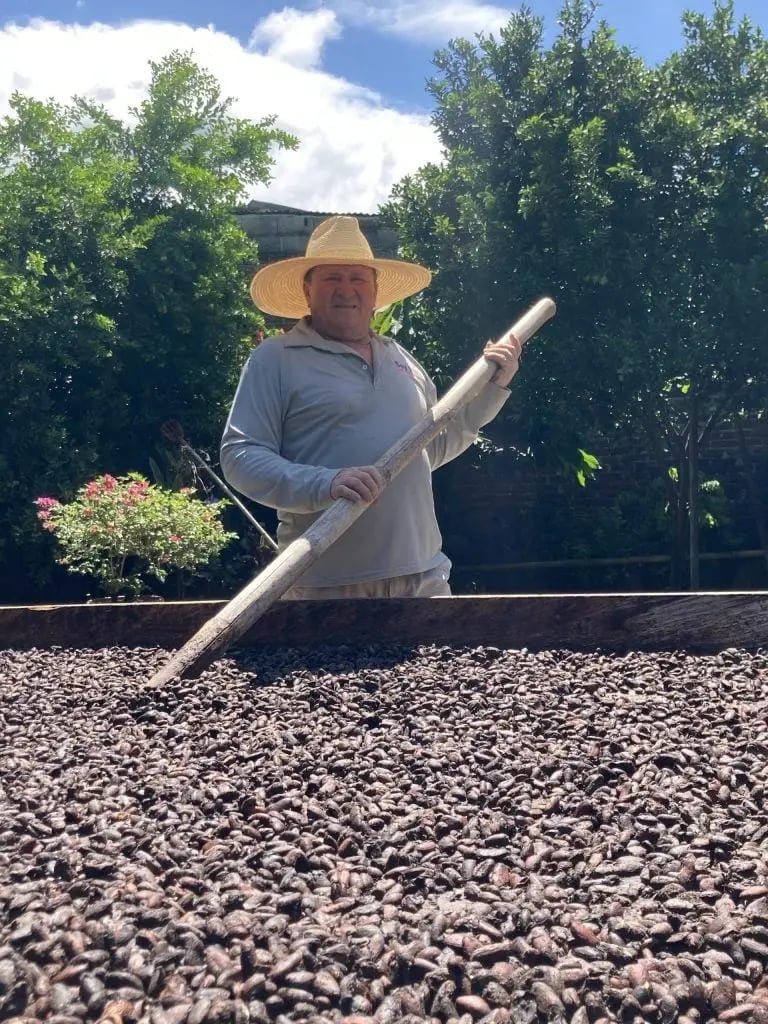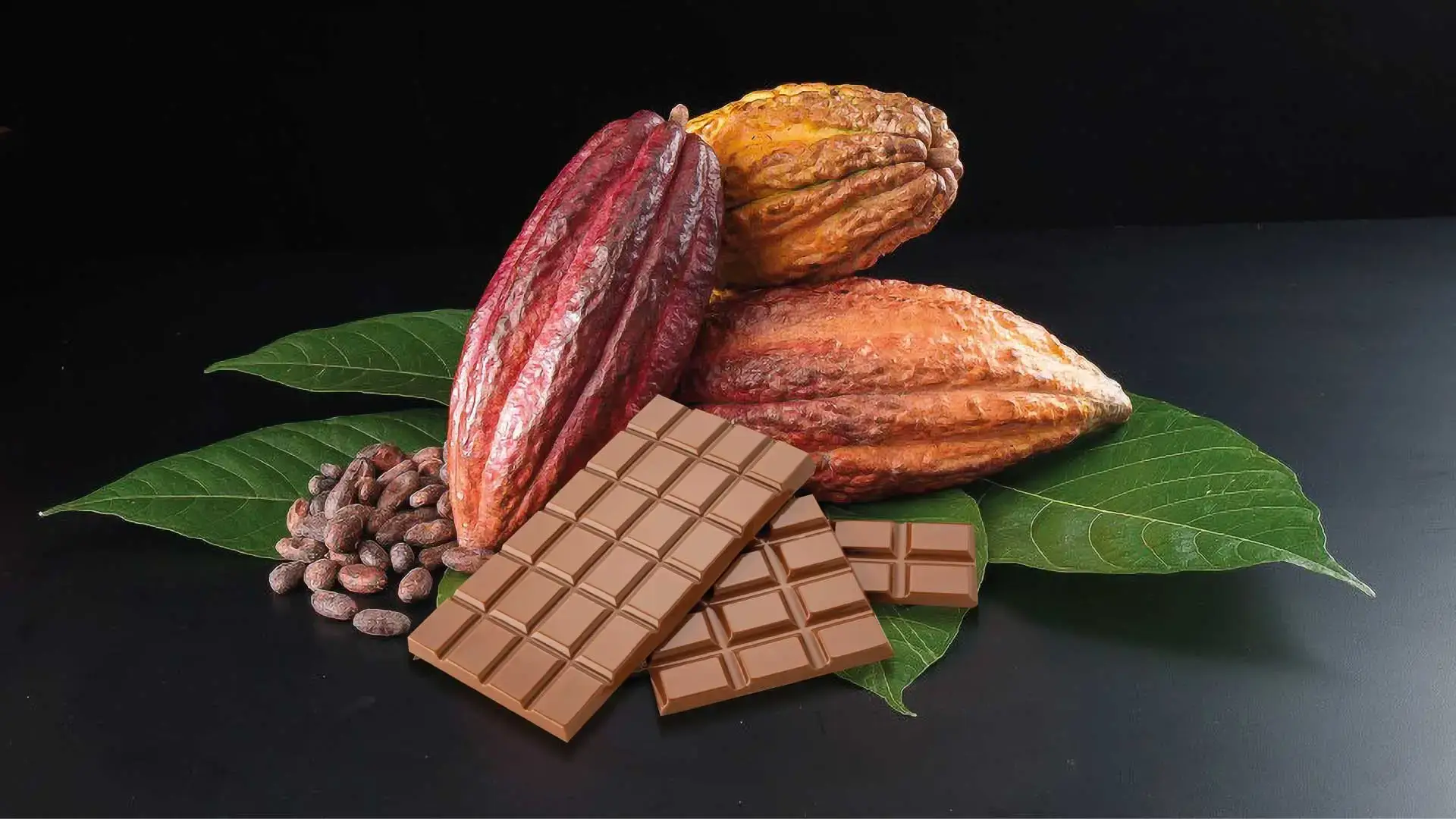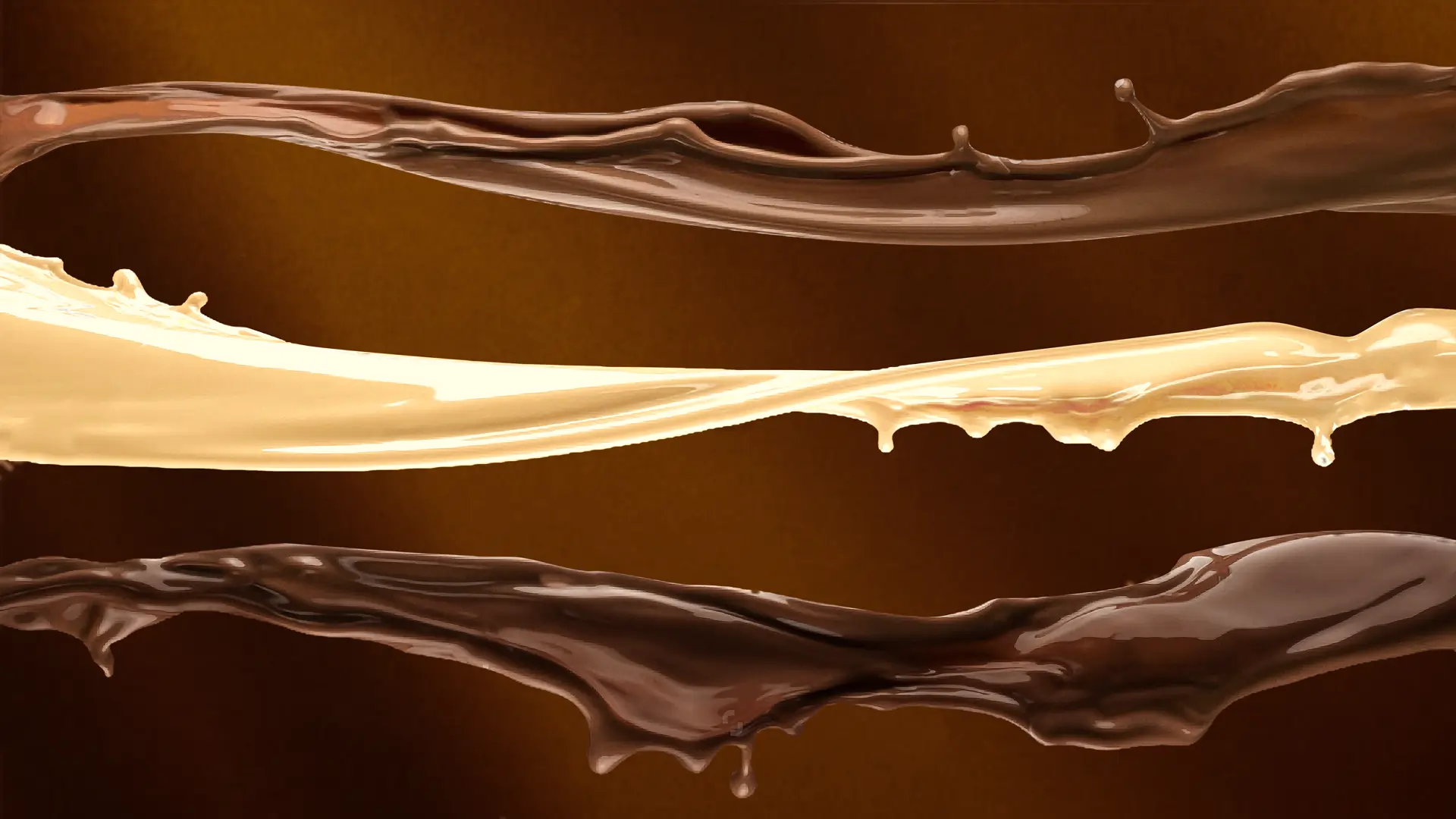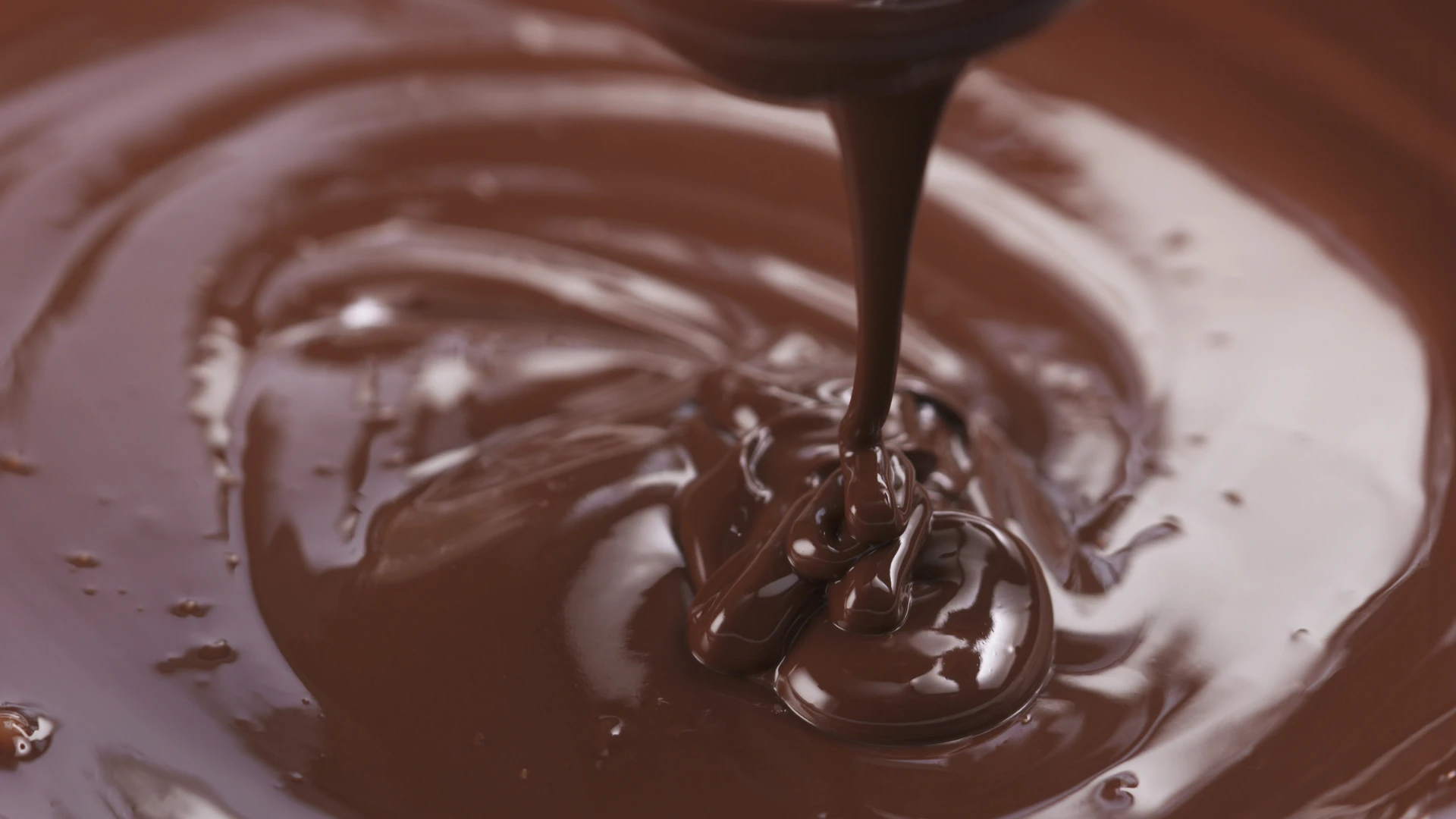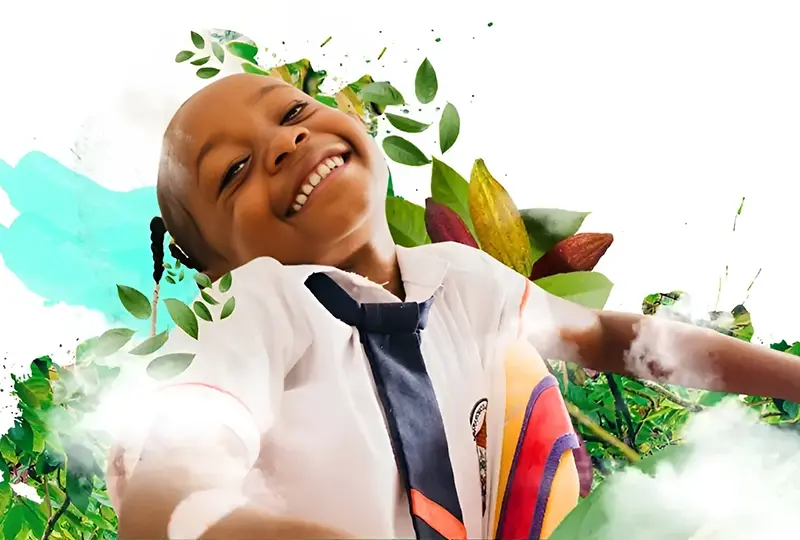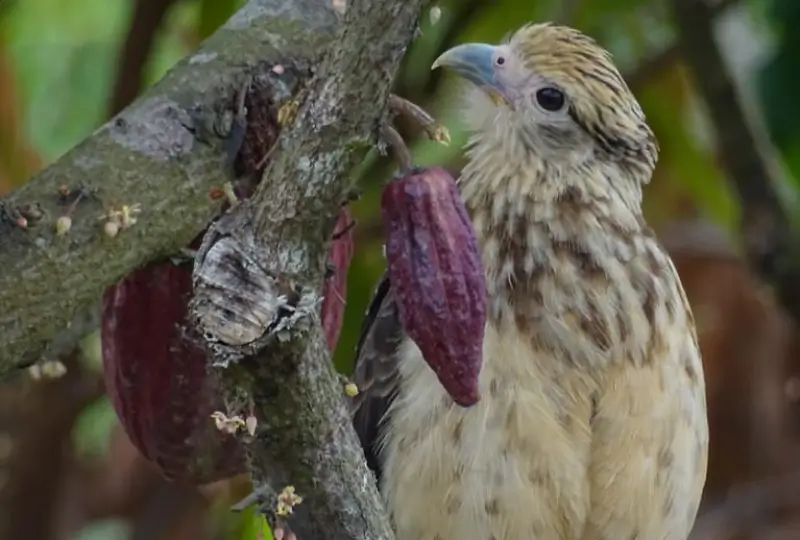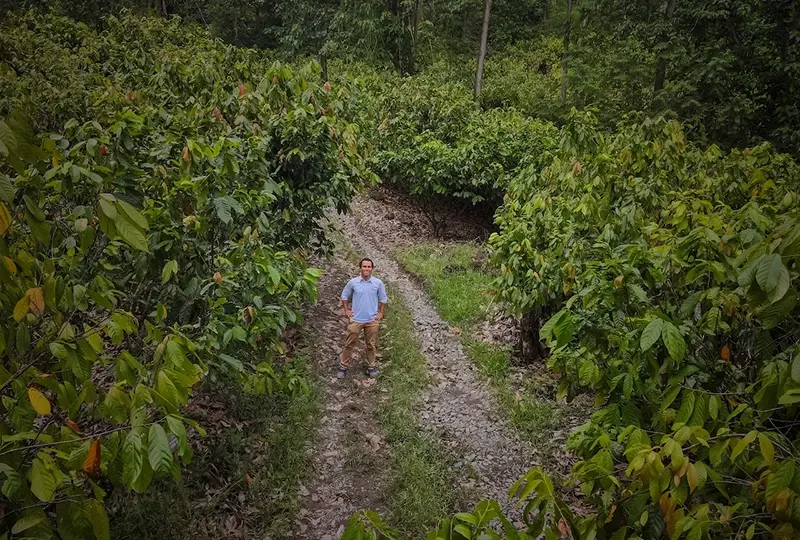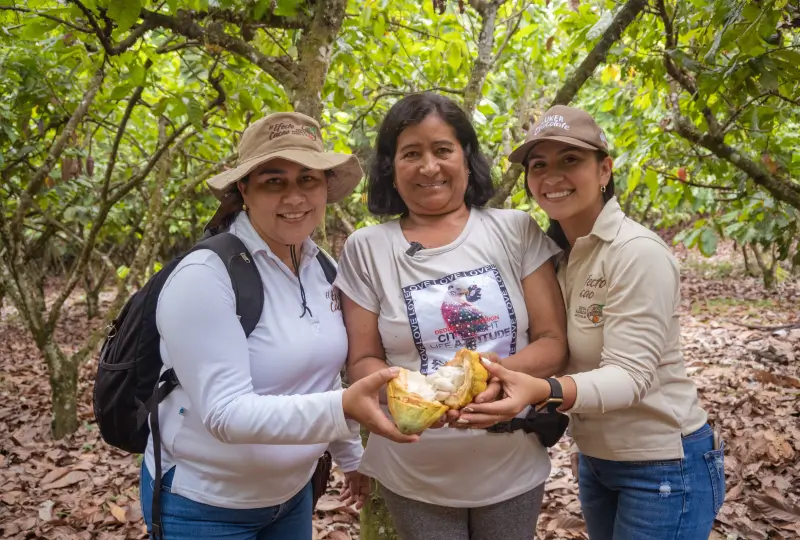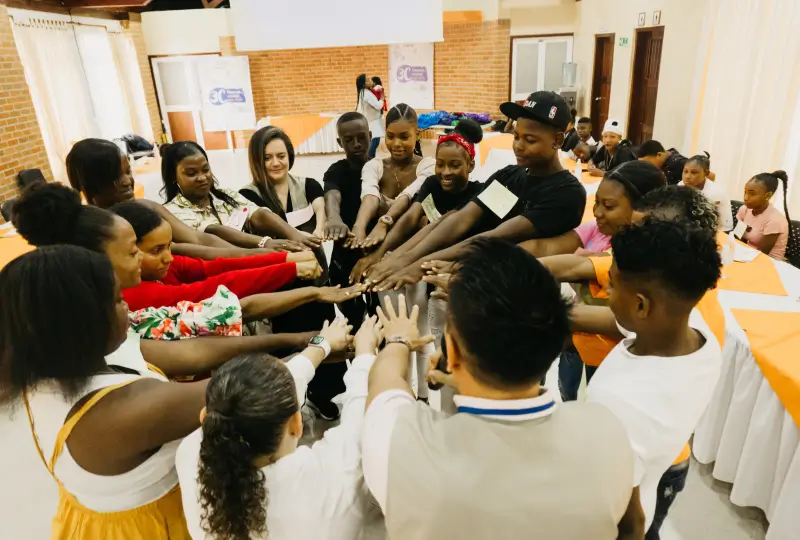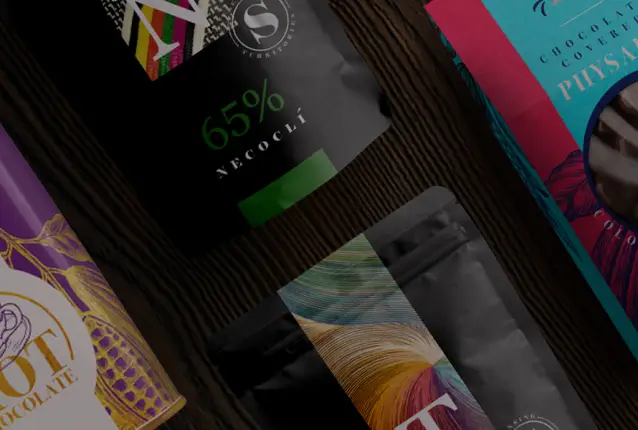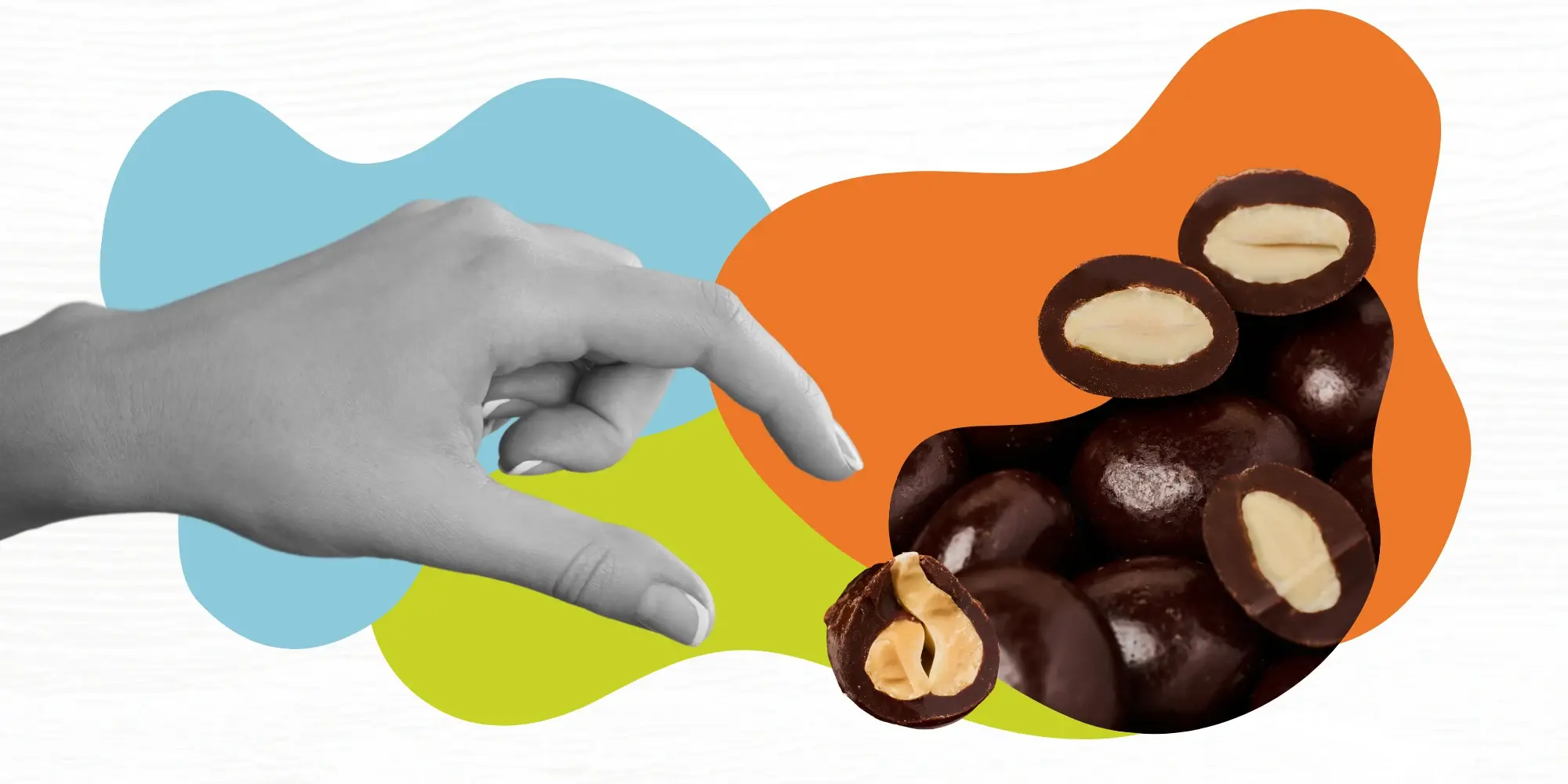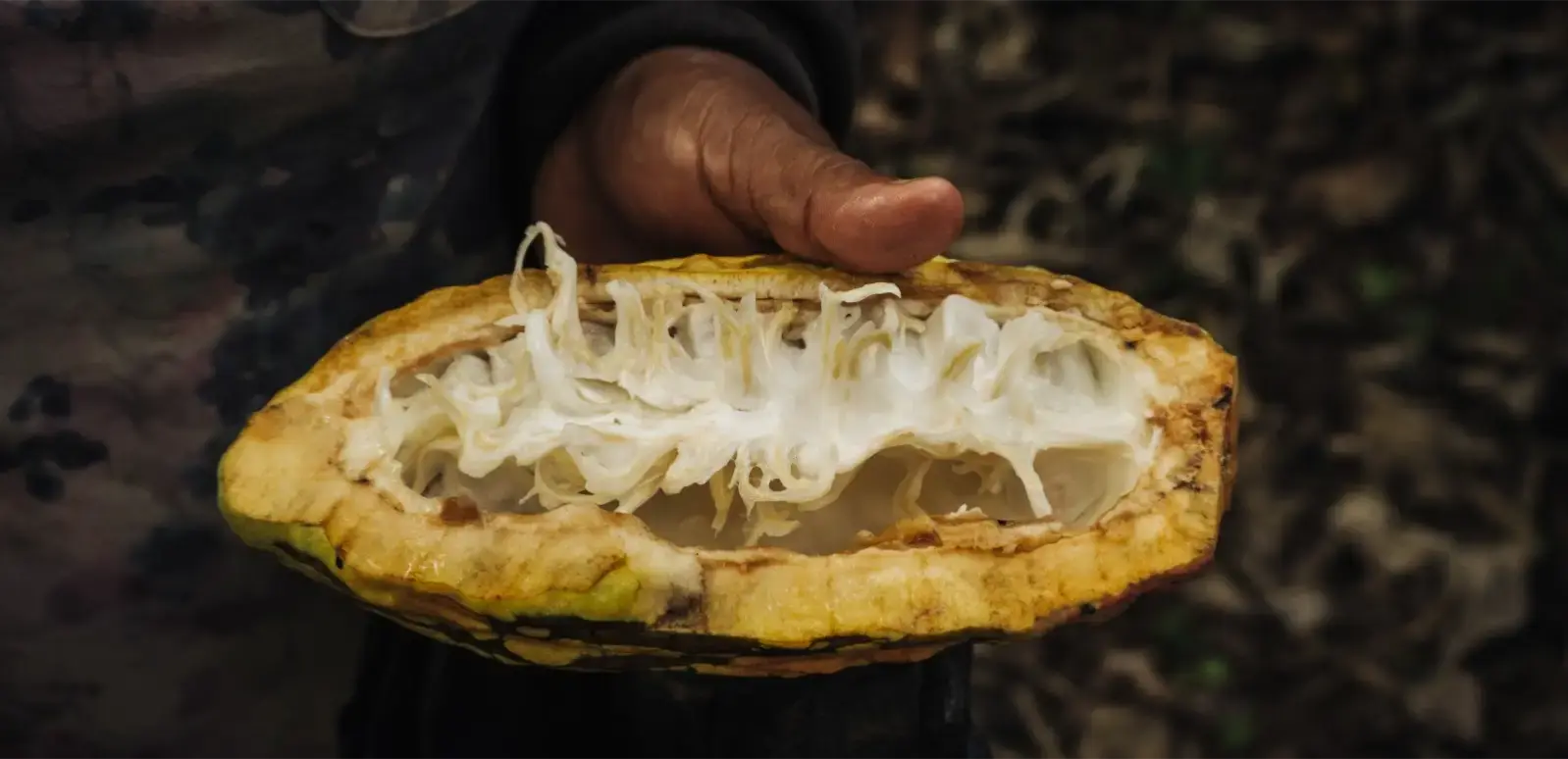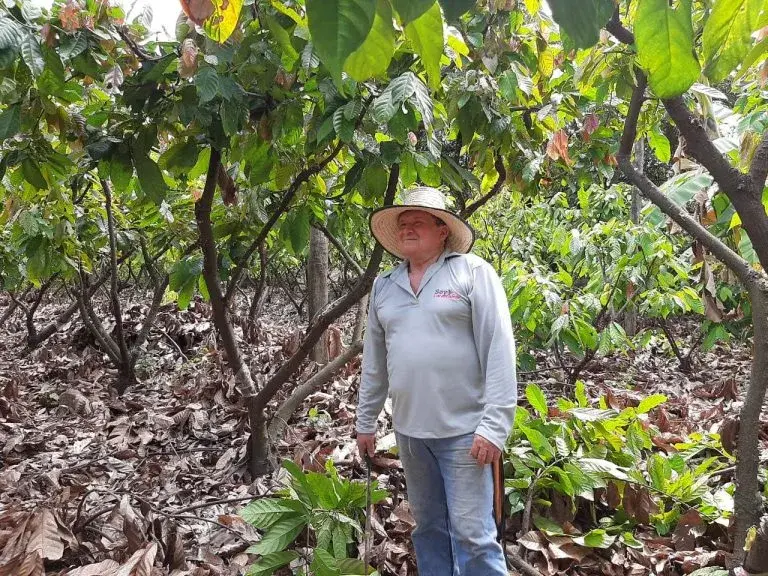From the cacao bean to the final product, many people take part in this great agricultural production chain. The effort and knowledge of cacao farmers are the first step, the first secret behind Luker Chocolate’s quality.
Fourteen years ago was the first time that Aldemar Guzmán set foot in the land to which he would dedicate the rest of his days. Each day for the rest of his life and there are still many more days to come.
He liked the plot: the weather was nice, the land was rich, and it was only 20 minutes away by bike from his home in the municipality of Rivera, Huila. He immediately thought that it was a place where he could put everything he learned from his grandfather Jesús to the test. Today, standing on those 10 hectares that he promised to care for and that are now planted with cacao, Aldemar never tires of repeating the words: ‘thank you’.
“I was able to study thanks to cacao. The beautiful house that I have which is envied by many I got thanks to cacao. Cacao gave me my friends. Everything I’ve learned and everything I’ve known I owe to cacao.”
Aldemar is 58 years old. His eldest son, Nicolás, studies Medicine at the Universidad Surcolombiana, in Neiva. His youngest son, Felix Andrés, is starting Civil Engineering at the Universidad de los Andes, in Bogotá.
“Since they were children, they learned by example that they can do anything if they have a positive attitude. I learned that same lesson from my grandfather.”
Aldemar was born into a family of cacao farmers. He finished primary school and high school, and later went on to study Agricultural Technology and Public Administration. From the outset, Aldemar’s dream was to have his own cacao cultivation, and fourteen years ago, he achieved his goal.
“My land is called La Bonanza (The Prosperity) because I sow all the seeds that I possibly can. I own 10 hectares, out of which I plant 8 with cacao and the rest with arazá, lemon, orange, coconut, tangerine, sapote, avocado, and pineapple. I go there and I sow. If something sprouts, that’s fine; if not, I sow once again to see what happens,” he says.
For the past year, Aldemar a large, tall, blond man has been part of the Rivera Association of Cocoa Producers (Asoprocar), which is one of Luker Chocolate’s suppliers. The farmer’s relationship with our brand, however, goes back a long way.
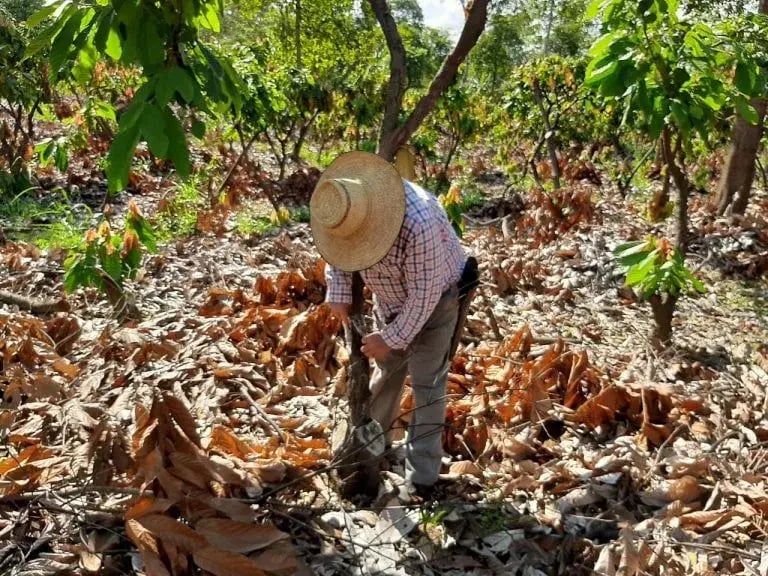
Eight years ago, in alliance with cooperation organizations, Aldemar visited La Granja Luker, where he received training in innovative farming techniques.
“I went back to La Bonanza and everything they had taught us was put into evidence. It was really a great experience. I would like to go back to see how much has changed and seen what new things I can learn,” he says.
Founded in 1962, La Granja Luker is a research and training center that seeks to help different cacao farmer associations to modernize their agricultural practices and improve their productivity, which results in a better quality of life. Aldemar is one of the nearly 30,000 cacao farmers and growers from all regions of Colombia who have passed through Granja Luker over the years.
Furthermore, small producers are offered plant material at La Granja Luker with a 20% subsidy on the purchase of new projects or for replanting. This allows farmers to update their crops with fine aroma, high quality and high productivity cacao varieties. It also allows them to receive help from a technical team of Luker Chocolate agronomists that travels all around Colombia.
Aldemar leaves his house every day before six in the morning. For breakfast, he eats biscuits made by himself and a cup of chocolate, preferably made with cow’s milk. He rides his bike for 20 minutes and then gets down to business. If it’s harvest time, harvesting is all he does; if not, he prunes, waters, cleans and spends time there. At noon he is back at home for lunch. At three in the afternoon, he helps his wife Nohora in their shop in Rivera. That’s his daily routine.
“Cacao is a very grateful crop: if you take care of it, it always pays back,” Aldemar says. I used to run around all the time, but time is a great teacher. Now I am calmer, I like to make jokes, just like a güipa, which is how we call children around here. I used to be stressed; now I make fun of stress.”
